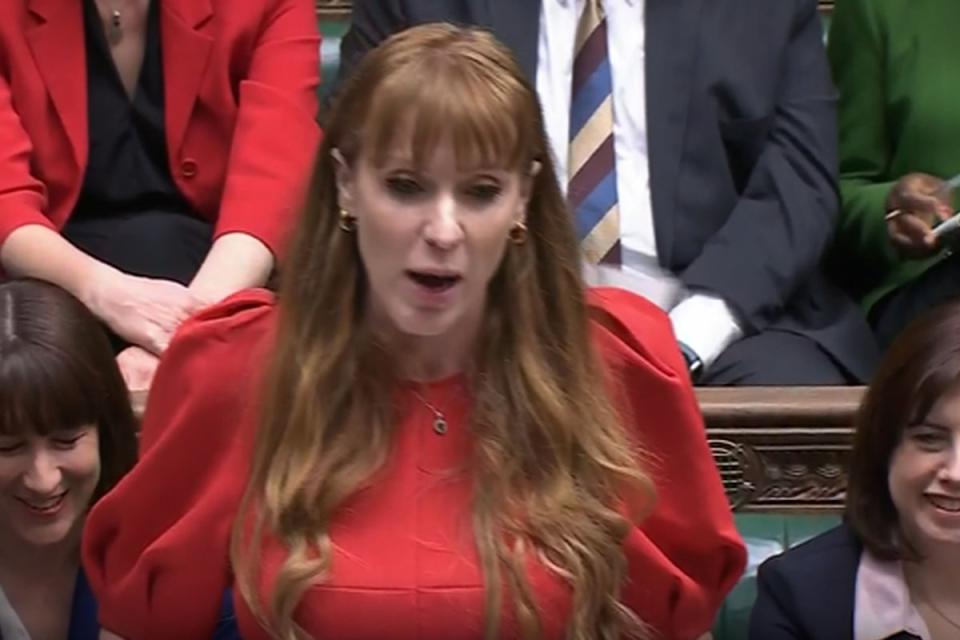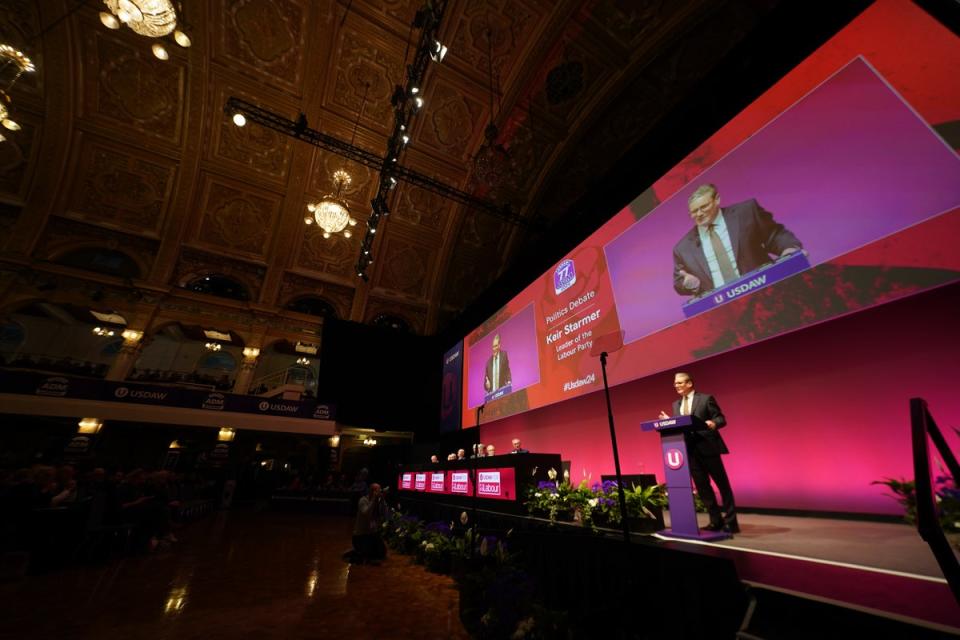Unions back Keir Starmer as Labour accused of watering down worker’s rights package
Unions have backed Labour’s commitment to worker’s rights in the face of claims that the party is planning to water down their workers rights reforms to appease business.
The Trade Unions Congress and GMB union have backed Keir Starmer’s commitment to the deal, despite May Day reports that Labour may be about to weaken their proposals.
Paul Nowak, the general secretary of the TUC said he still expects Labour to “deliver the employment bill in the first 100 days” and said Sir Keir had “re-affirmed his commitment to delivering the New Deal, in full, just yesterday to hundreds of shop workers at USDAW’s national conference.”
A GMB spokesperson also said that Sir Keir has been “clear about the importance of the agreement” and said that their union “looks forward to it being honoured”.
The unions have intervened amid reports from the Financial Times that shadow ministers have been discussing their New Deal for Workers with corporate leaders and are looking to unveil a watered down version of the plan as part of their pro-business push.

Labour have vowed to uphold its package - outlined in 2021 – which it deemed as the largest increase in workers’ rights for decades, with Sir Keir having previously warned business chiefs that the measures would “not please everyone In the room”.
The plans include a long list of employment policies ranging from higher sick pay to ending employers’ use of “fire and rehire” and reversing anti-strike legislation.
Shadow ministers are expected to meet with union general secretaries over the coming weeks to seek their approval for the new version of the workers’ rights package, or at least minimise their resistance, according to reports.
The new New Deal will emphasise that all policies will undergo a formal consultation process with business, which would allow for input from organisations that could potentially water down proposals and delay their implementation.
The party had originally pledged to bring the legislation forward within the first 100 days of office.
A Labour spokesperson insisted that the party had not changed their proposals: “Our commitments to bring forward legislation to Parliament within 100 days to deliver the New Deal and to consult widely on implementation have not changed.”
The party have previously said they would look at how to implement the “Right to Switch Off” in practice, learning from other countries that have introduced the policies successfully.
On Tuesday, Sir Keir re-emphasised his commitment to worker’s new deal, stating that Labour would “embark on the biggest levelling-up of worker rights this country has seen for a generation”.

Speaking at the Union of Shop, Distributive and Allied Worker (Usdaw) conference, Sir Keir added: “That’s what our New Deal for Working People will achieve. And I should take this opportunity to thank Paddy for being such a strong advocate for our New Deal. We must argue for it on those terms. Because good employers know that they have nothing to fear from this new deal.”
Labour conference unanimously voted for the New Deal for Working People as recently as October.
The party’s deputy leader Angela Rayner, who is spearheading the New Deal, pushed back against former Labour cabinet minister Lord Peter Mandelson after he criticised the pledges back in March.
Ms Rayner compared his comments to “squealing” by business over the introduction of the minimum wage a generation ago.
“It won’t be an easy sell for Angela but . . . this is still a substantial package of reforms which will improve life for workers,” a Labour official is alleged to have told the FT.
In response to the reports, a Labour spokeperson said that New Deal will be a “core part of Labour’s offer to the country” and the party “will be campaigning on this ahead of the General Election”.
They added: “Labour’s New Deal for Working People was agreed at the party’s National Policy Forum last summer building upon our Green Paper.”


